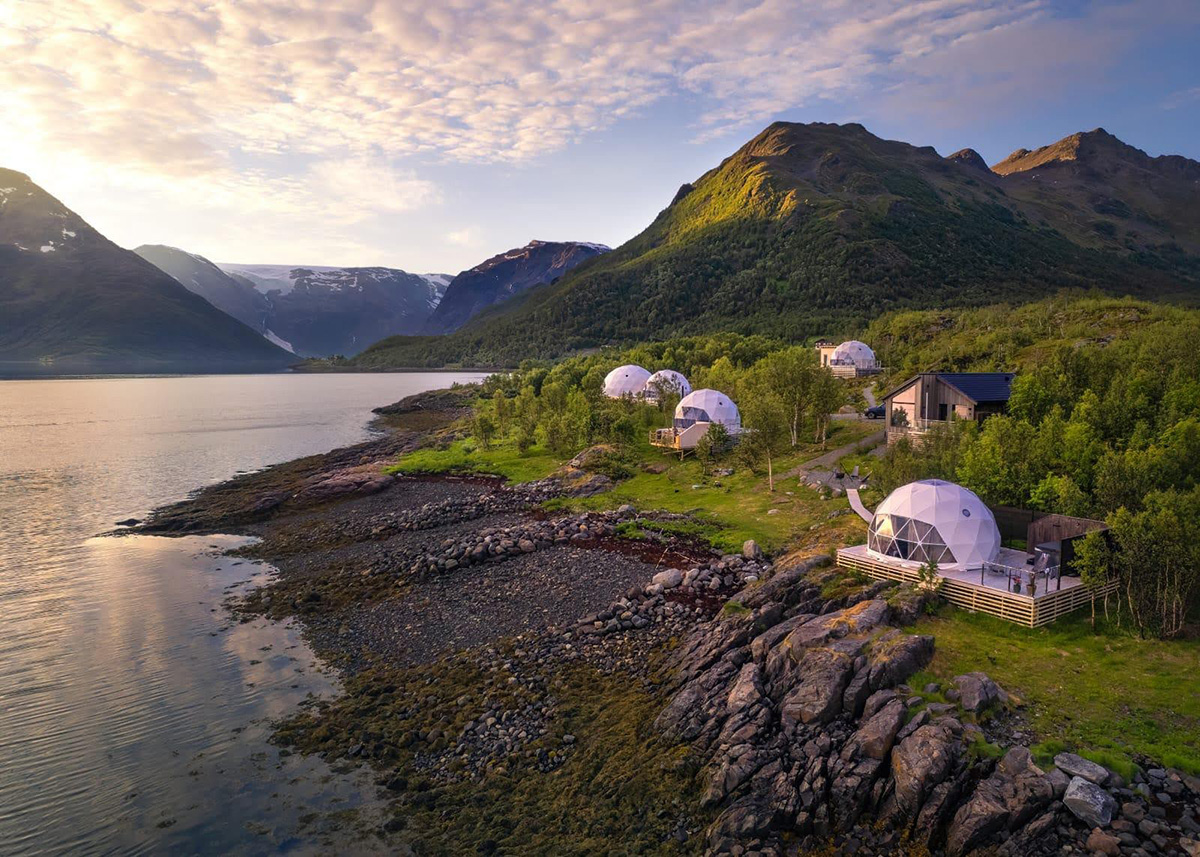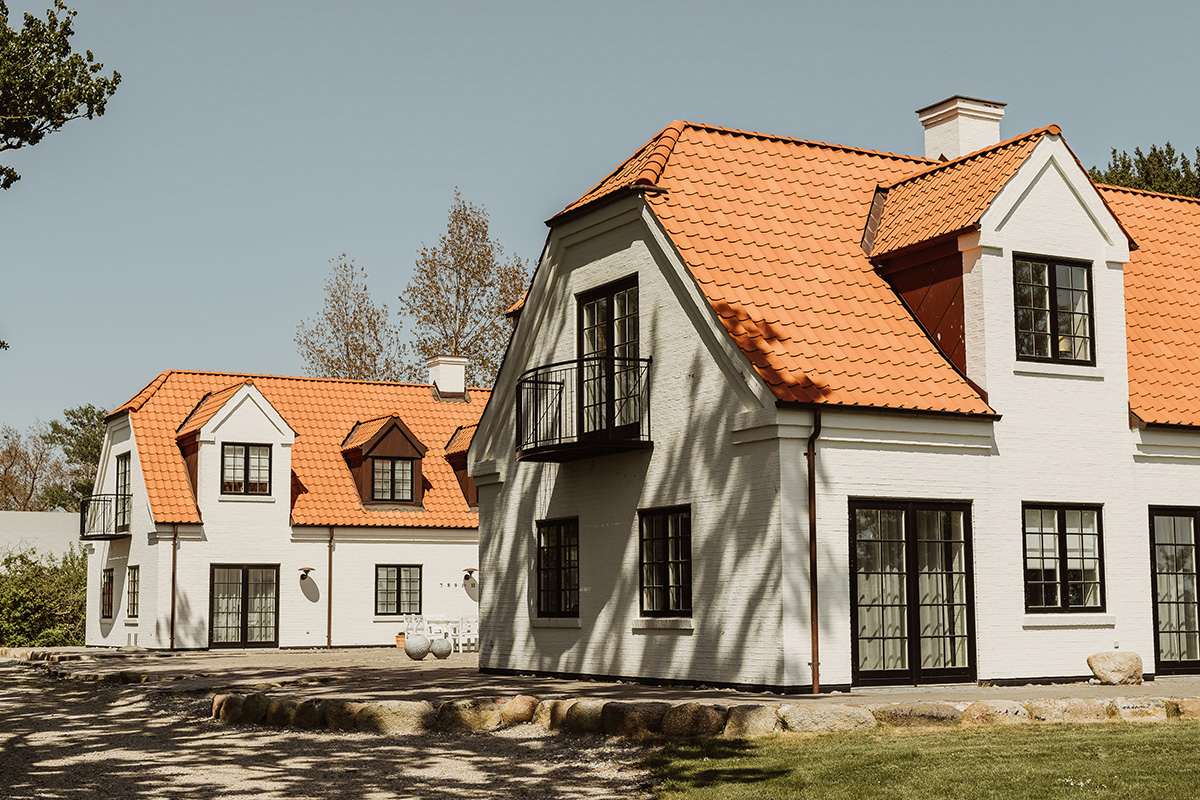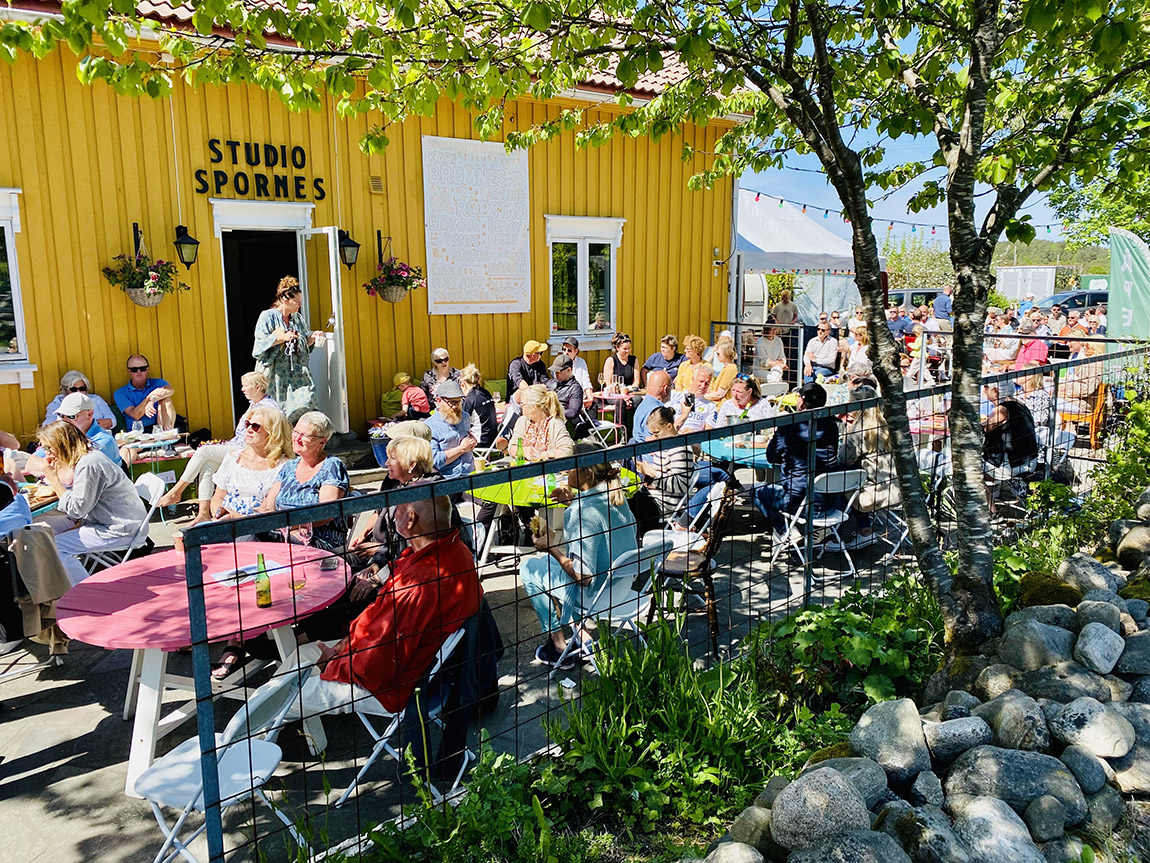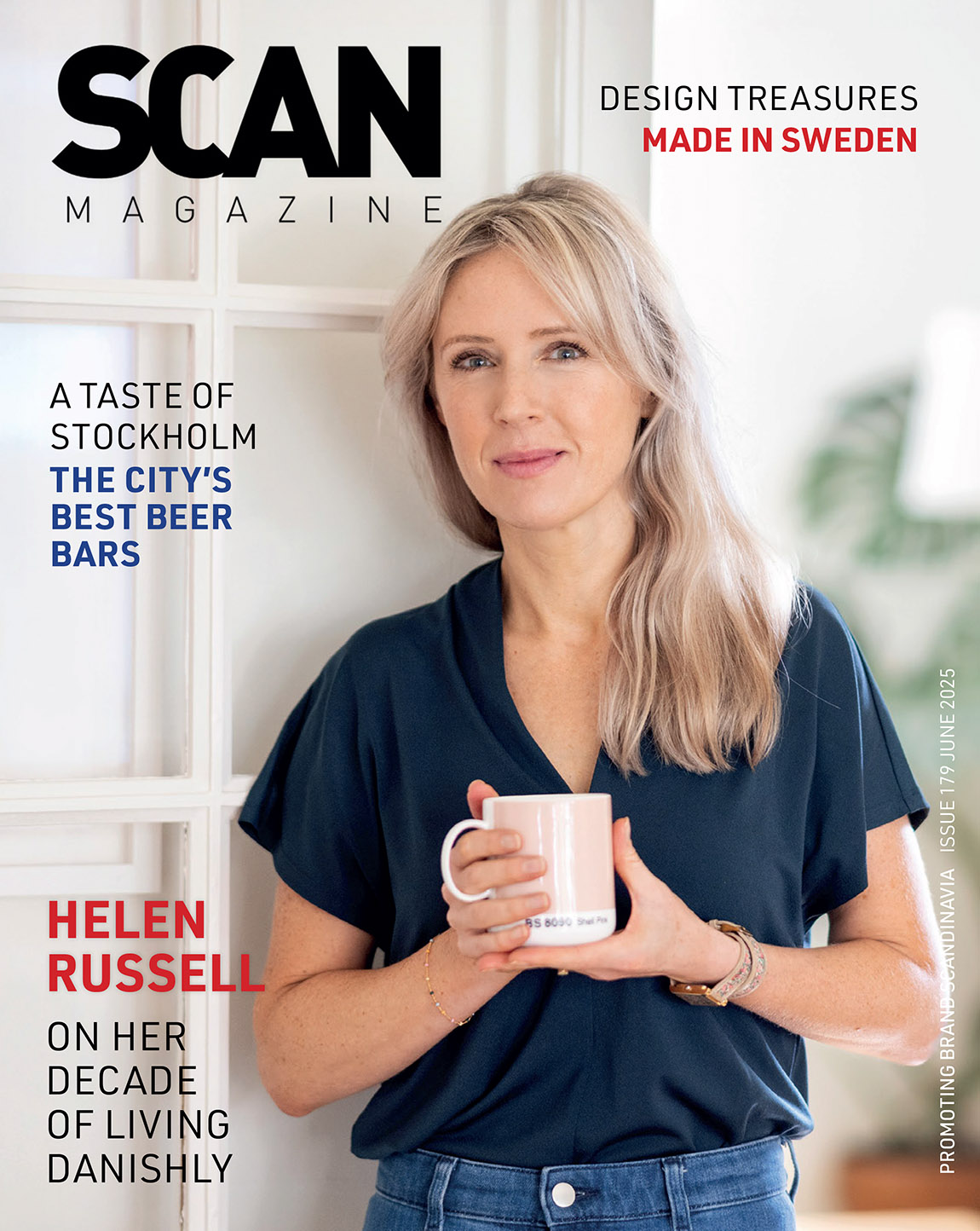Mizgiris Amber Museum: Explore the world of amber, with all your senses
By Malin Norman | Photos: Mizgiris Amber Museum
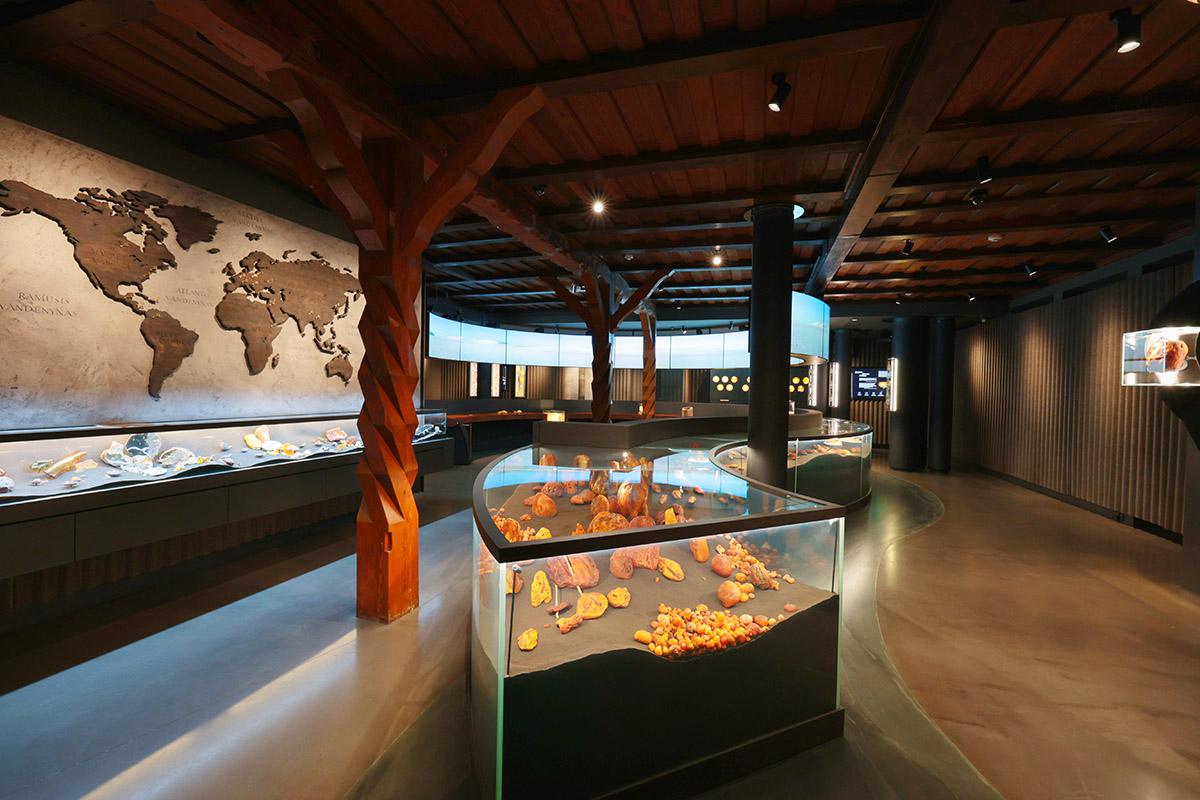
At Mizgiris Amber Museum in Nida, Lithuania, visitors can explore the captivating world of amber. This immersive experience brings together history, nature and beauty – a must for anyone interested in the natural wonders of amber.
Opened in 2021, Mizgiris Amber Museum in the seaside town of Nida is unlike any other museum. It offers an experimental journey in the world of amber, presented in a creative way that is designed to awaken curiosity and the desire to explore. The interactive and immersive experience guides visitors with sound, vision, and other sensations.
Founded by collectors Virginija and Kazimieras Mizgiris, who have dedicated their lives to amber, the modern museum is one of a kind in the Baltic region and cherished by Lithuanians as well as visitors from abroad.
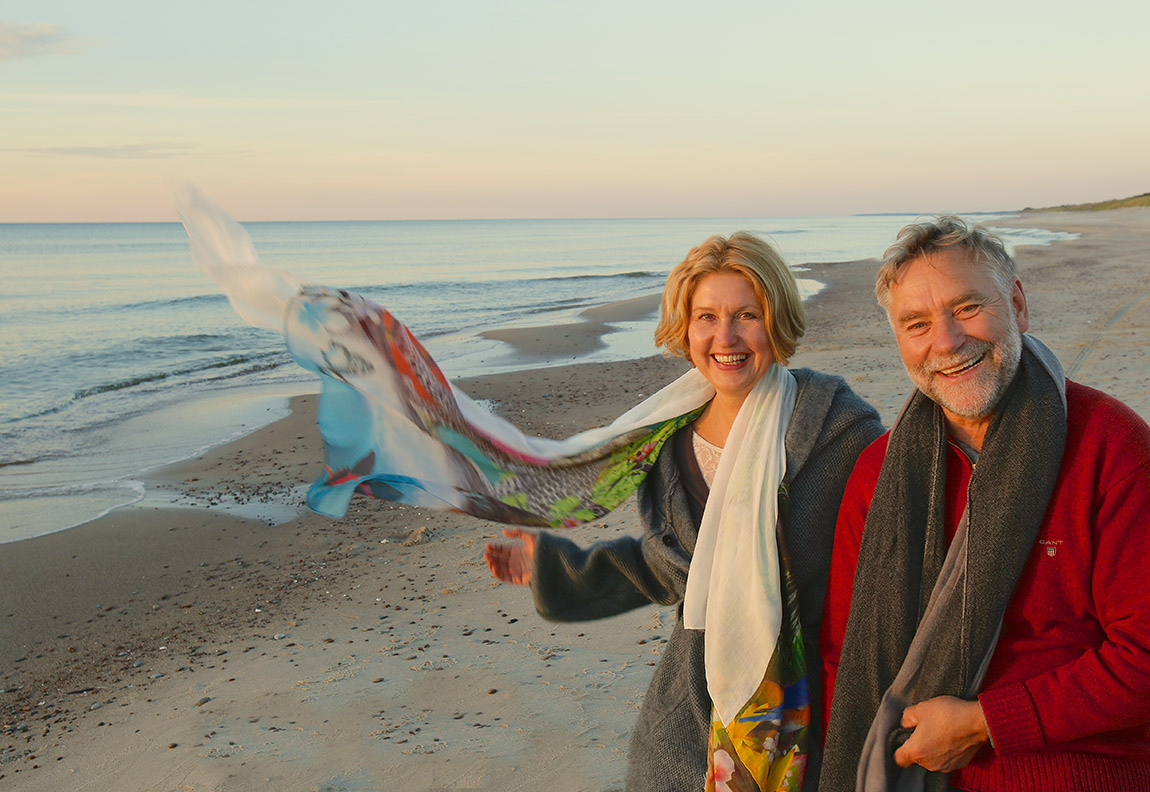
Virginija and Kazimieras Mizgiris, founders of Mizgiris Amber Museum.
The museum is located in the old German Youth Hostel, built in 1928. On the first floor, you will find the main exhibition with displays featuring the latest technology, while the second floor houses an art gallery with around 350 stunning works by 50 Lithuanian and international artists, and finally a fascinating, secretive amber room that is controlled by motion.
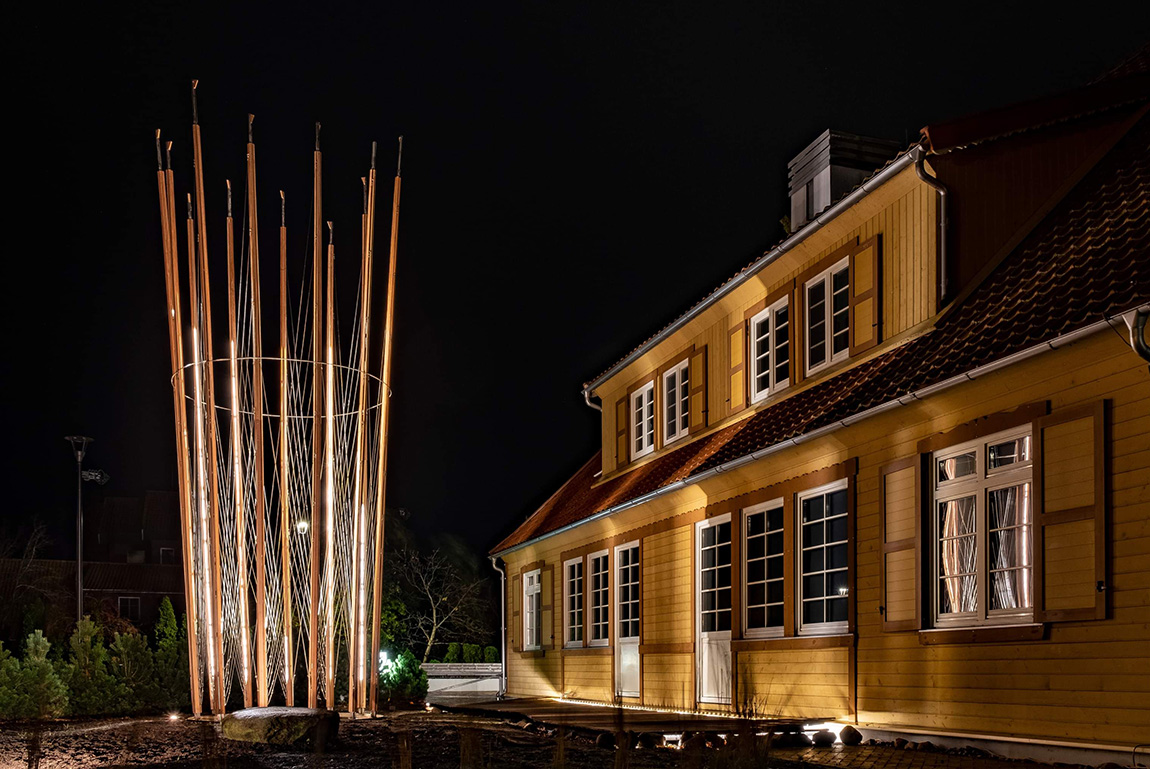
Amber forest and flowing river
Amber is a part of Lithuanian culture. It has been collected near the Baltic Sea since ancient times, as evidenced by the amulets in the Juodkrantė treasure, which dates back to the Early Stone Age – it was found while digging for amber near Juodkrantė by the Curonian Lagoon. Visitors can learn more about the treasure and the meanings of the amulets at the museum, where they can view all 434 amulets. The largest marine amber on display in Lithuania, the Thunder Stone, weighs 3.820 kilos and can also be seen at Mizgiris Amber Museum.
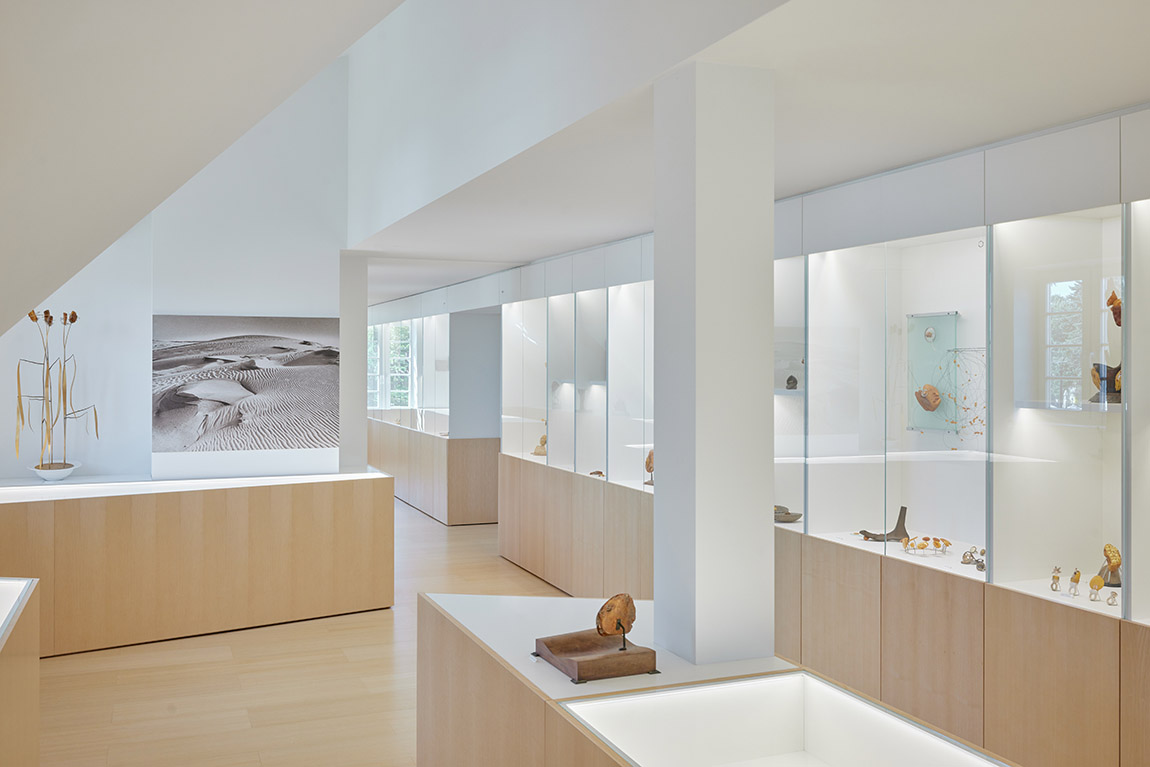
The museum highlights the beauty of amber but also explores the historical significance and the processes involved in its formation and extraction. The main concept of the museum is an extraordinary forest of amber trees and a flowing river, representing the road of amber from nature to being a part of culture. Guided along the river by lights and a voice, visitors walk through the mysterious forest whilst listening to the stories and secrets of amber.
Alluding to power and status, amber has long captivated humanity and is also believed to have healing properties, often used as a decorative element. In the museum’s interactive displays, visitors can learn about the physical and therapeutic properties of amber through artistic expressions.
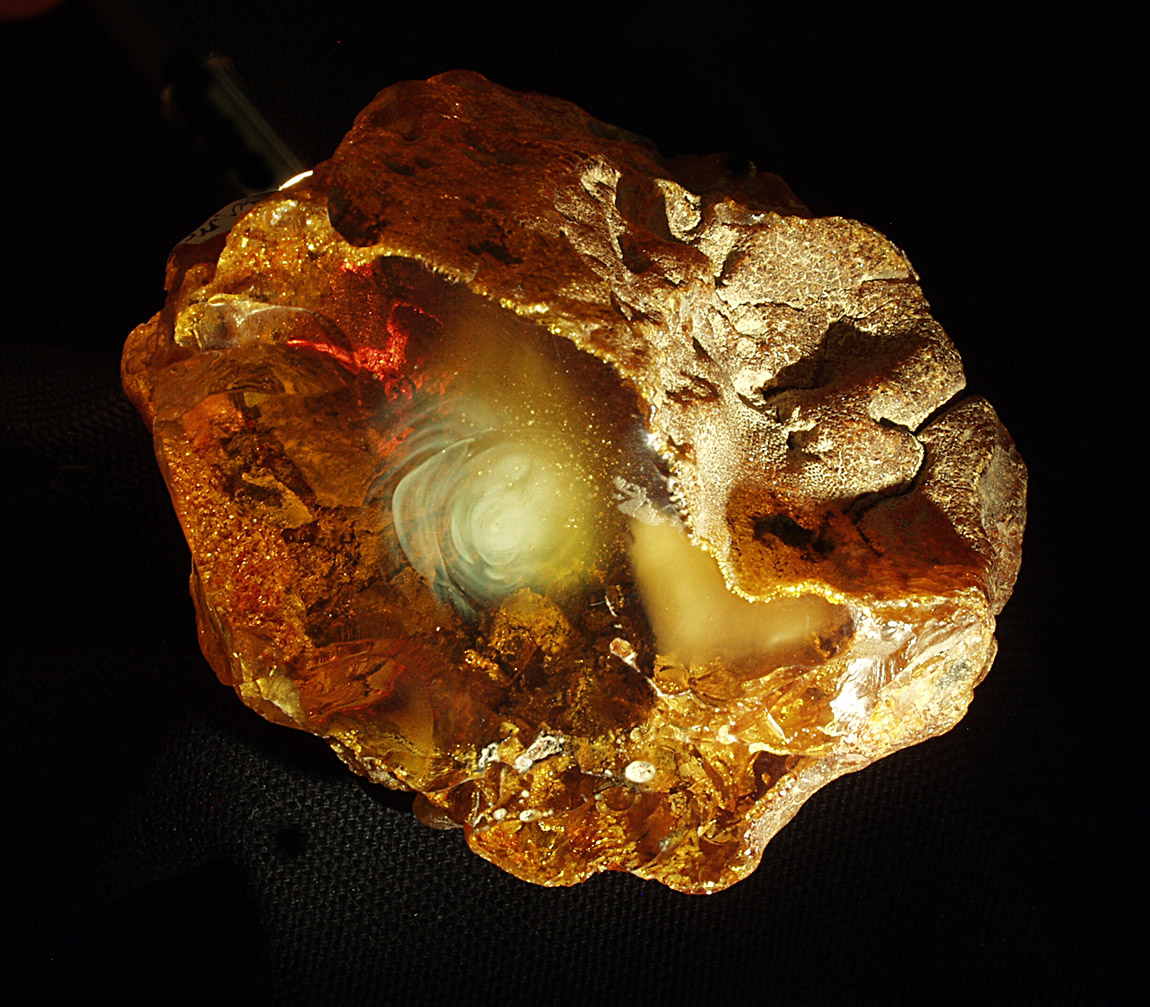
Nature’s own time capsule
Not a gemstone in the traditional sense, amber is fossilised pine tree resin, hardened and weathered for around 40-50 million years. In the museum, special screens show a 3D film about the various processes that lead to amber formation. An animation also presents a mythical legend of the origin of amber, featuring the sea goddess Jūratė and the mortal fisherman Kastytis, well-known in Lithuanian folklore.
Did you know that the rock-like amber can be found in many different colours? Often, amber has a warm and golden orange hue but there are in fact some three hundred different shades, from milky yellow to cognac and cherry red, and even rare green and blue amber.
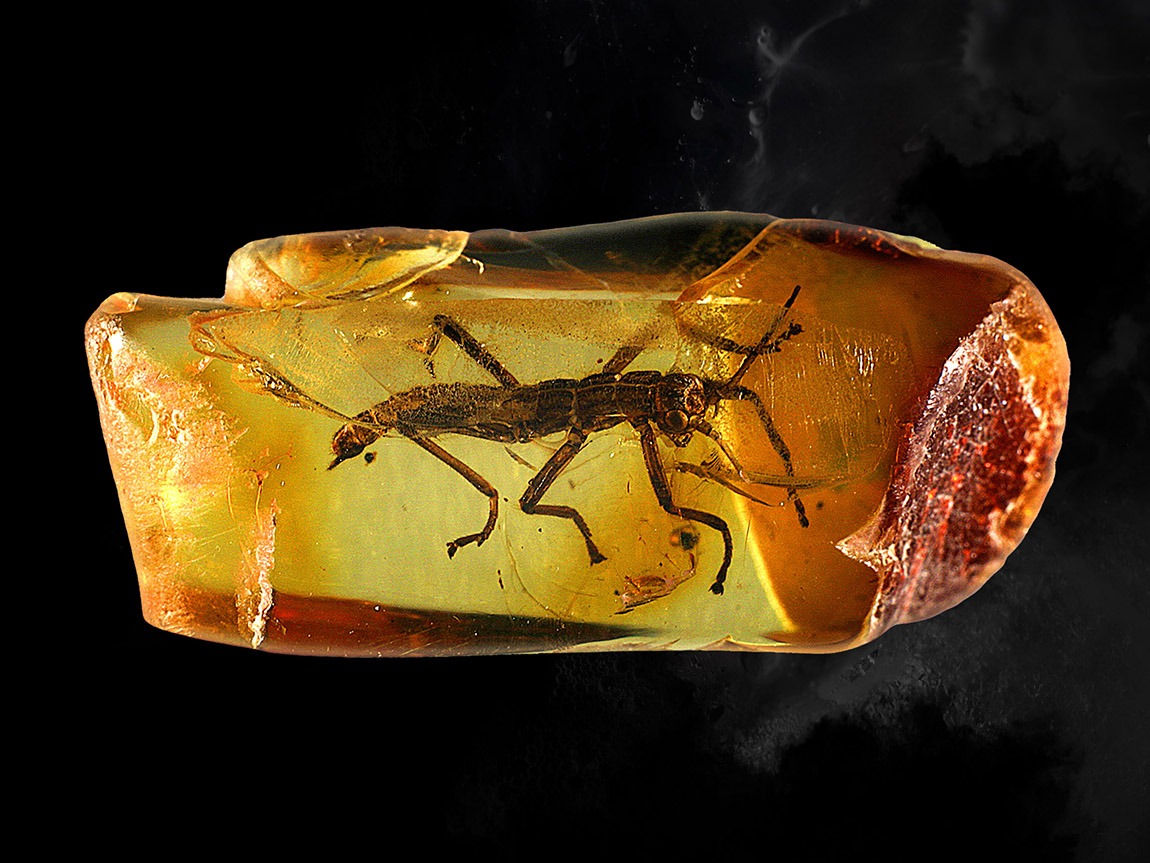
The different colours depend on what happened to the resin before it hardened, what processes affected it and what impurities fell into it. For example, resin exposed to volatile elements appear dreggy and shades can change from yellow to completely white. Various impurities that made their way into resin may result in blue, green, black, and brown hues. And oxidation may have darkened the resin and given it a red, black, or rich yellow colour. Amber can also have air bubbles trapped inside and contain leaves, pieces of wood, and insects – like nature’s own time capsule.
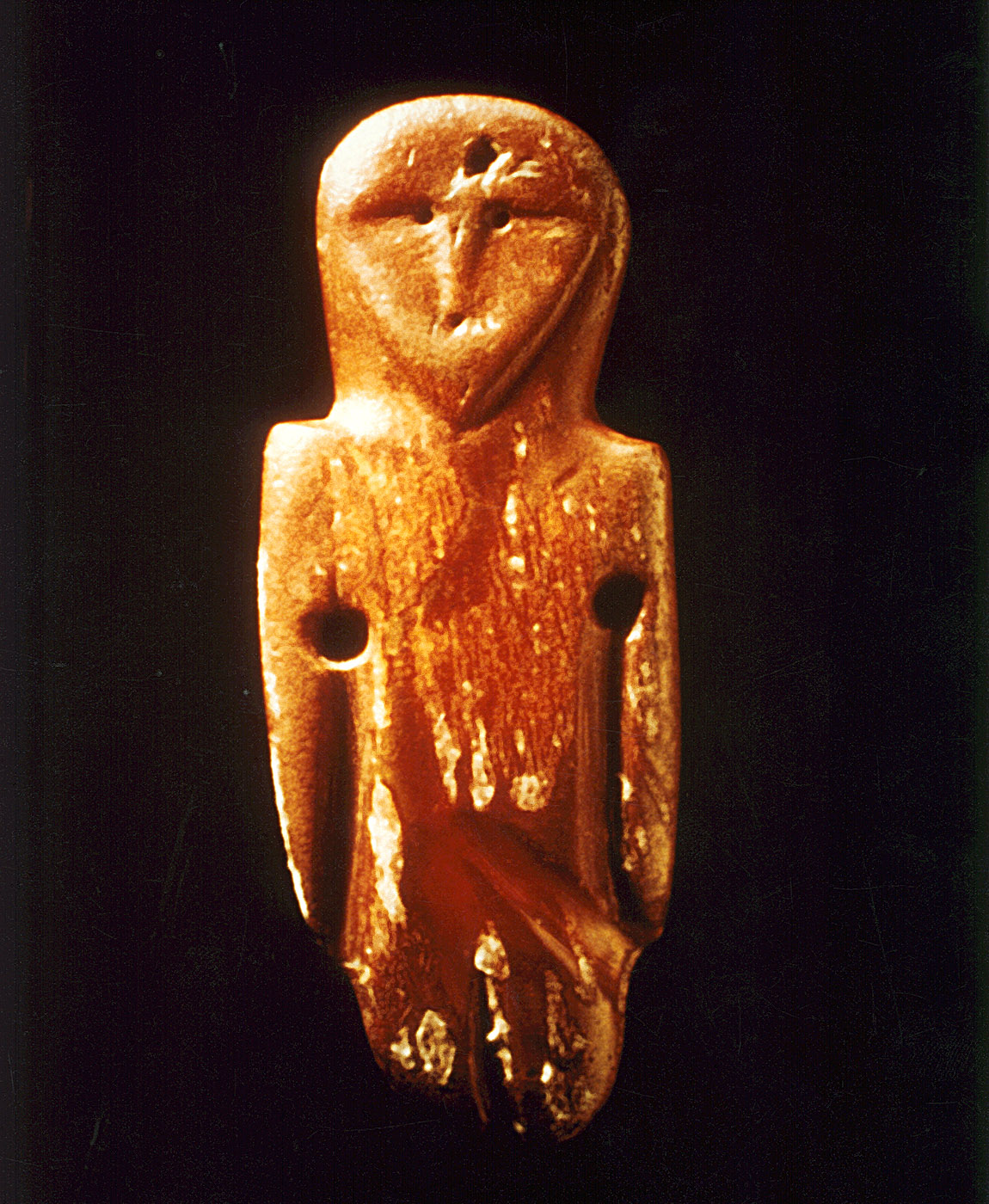
Amulet from the Juodkrantė treasure.
International amber ambassadors
The museum’s founders Virginija and Kazimieras Mizgiris have been exploring amber for more than thirty years. In their efforts to introduce amber to a broader audience and to Lithuanian and international art, the couple first set up the Amber Gallery in Nida and later the museum, as well as the Art Centre of Baltic Amber in Vilnius. They also represent Lithuania in the World Amber Council.
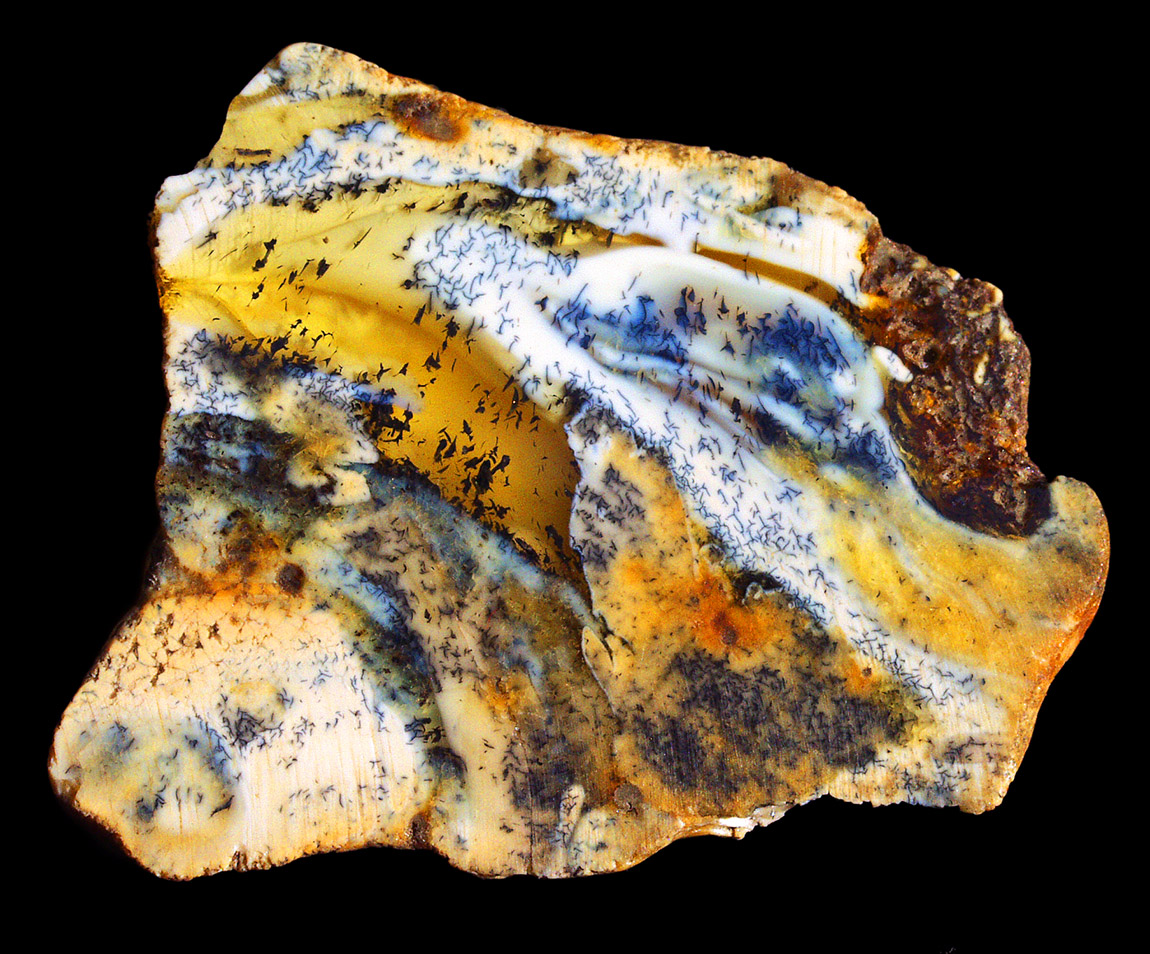
Further promoting amber as a phenomenon, the couple created the exhibition Baltic Amber: History and Design, which has been touring around the world including Iceland, Canada and the US, and featured at the Festival of Contemporary Art as organised by the European Culture Foundation at Vittoriano Museum in Rome.
Mizgiris Amber Museum is open daily from 10am to 7pm. With its picturesque setting in Nida, welcoming atmosphere and knowledgeable staff, it is an ideal place for families and amber enthusiasts to explore and learn more about this wonder of nature.
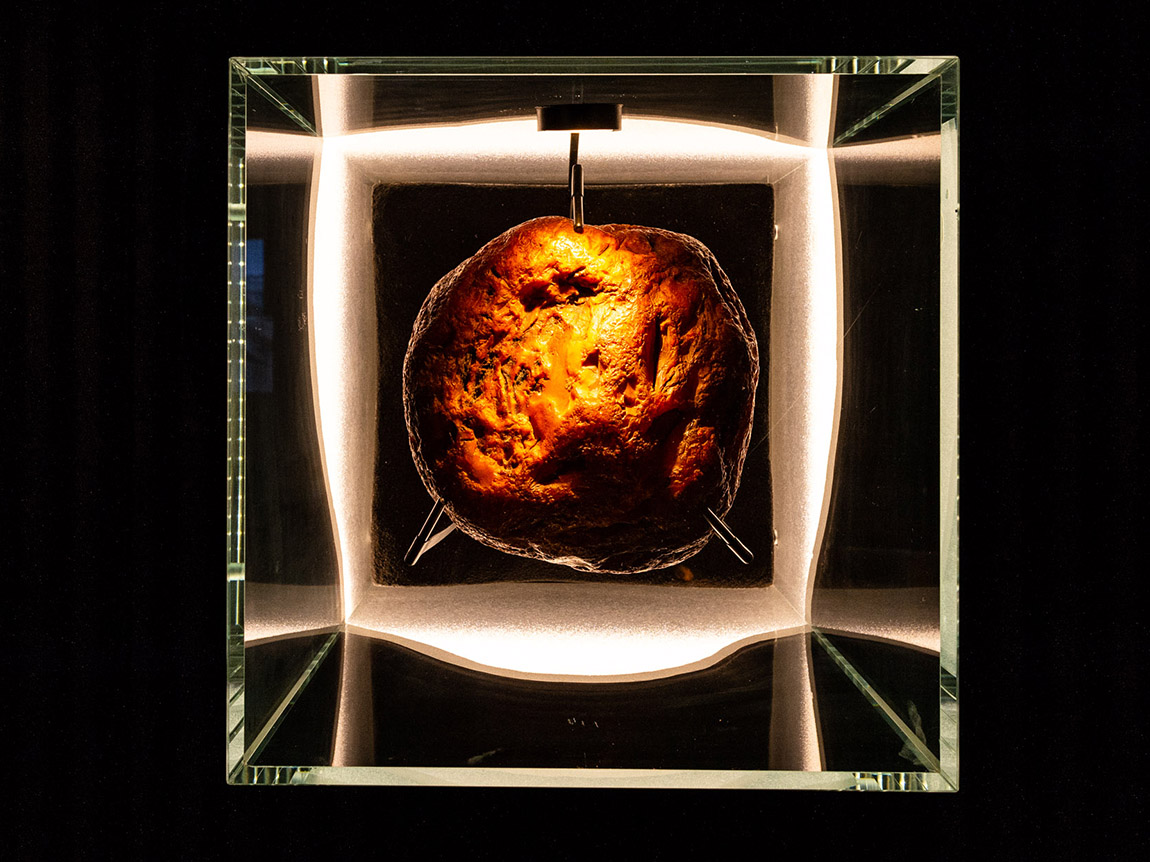
The largest marine amber in Lithuania, the Thunder Stone, which weighs 3,820 kg.
Web: www.ambergallery.lt
Facebook: Mizgirių Gintaro Muziejus /Mizgiris Amber Museum
Instagram: @mizgirisambermuseum
Subscribe to Our Newsletter
Receive our monthly newsletter by email

